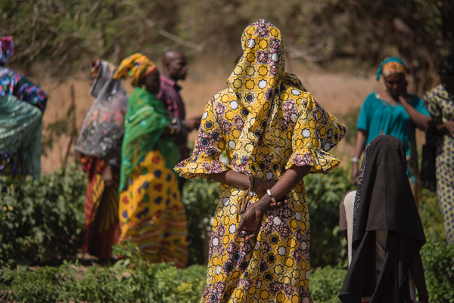Building a greener future
In rural Bolivia, young women rarely take part in agricultural organizations, but Sayda Apaza is an exception. At just 25 years of age, she’s the owner of a citrus fruit and banana plot and is the secretary general of the farmers’ group in the Caranavi province of La Paz’s Department. Sayda is one of the 24 youth who attended the Ecological Schools workshops supported by Crossroads International with funding from UNIFOR’s Social Justice Fund and implemented by local partner the Association of Organizations of Ecological Producers of Bolivia (AOPEB).
“I’m very thankful to this project because before I was shy, I did not like to take part in these sort of things, but with the support I received I was encouraged to participate in these types of activities and have become head of my community group.”

In Bolivia, the migration of young people to big cities threatens the future of the agricultural sector on which so much of the economy depends. Farmers for the Future was a two- year pilot project to help youth see farming as a viable career option. Rural youth were trained in sustainable farming practices and Ecological Producers Organizations (EPOs) were encouraged to include youth as members and decision makers.
“I’m very thankful to this project because before I was shy, I did not like to take part in these sort of things, but with the support I received I was encouraged to participate in these types of activities and have become head of my community group.” Sayda Apaza, student of the Ecological School in Bolivia.
Participants gained skills in leadership, sustain-able agriculture, accounting, and in using computers through five different workshops.
“The most interesting [workshop] was the one on leadership because it was a way to motivate me. I am currently working on strengthening my community’s agricultural production and I am progressing on this, finding new alternatives and new proposals along the way (…), so I intend to continue until I finish my mandate.”
Sayda was one of 22 young trainees who implemented demonstration plots and replicated the training received with other young farmers. More than 140 youth attended the workshops organized by trainees like Sayda.
For Sayda there is still a lot to do to get more young people involved in agriculture within her community, especially young women.
As a woman, I feel fortunate that my father encouraged me. I think of other girls whose parents think agriculture is too hard for their daughters and do not support them. Most of the young women in my community are looking for partners. They leave, and they go far away from their families.”




